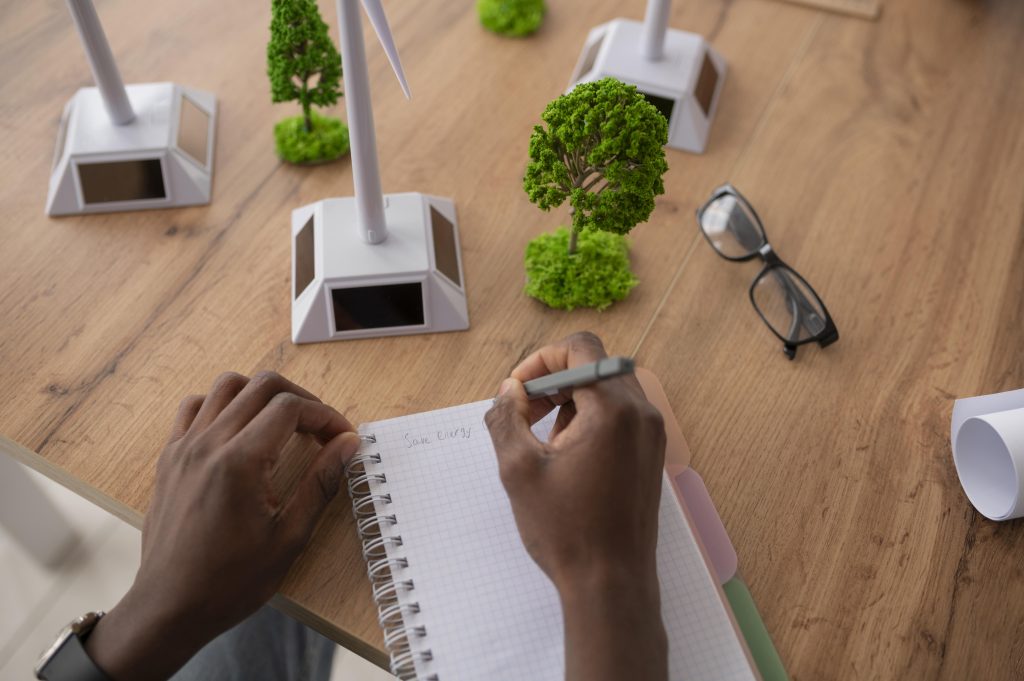Across industries, from finance and fashion to construction and media, organizations are under growing pressure to operate responsibly — not just to meet environmental standards, but to align with social, ethical, and governance expectations.
This shift has created a powerful ripple effect in the global workforce. Professionals across disciplines are rethinking their career paths, and the common question now is:
“Can I build a career that makes an impact and aligns with my expertise?”
The answer is yes, but it begins with understanding what sustainability careers truly look like and whether they align with your personal and professional strengths.
Understanding What a Sustainability Career Really Means
Many people assume a sustainability career means working directly on climate policy or renewable energy. In reality, sustainability cuts across nearly every sector.
A sustainability career is any role that contributes to balancing three key priorities: people, planet, and profit.
It could look like:
- A finance analyst integrating ESG (Environmental, Social, Governance) metrics into investment decisions.
- A product designer reducing waste through circular economy principles.
- A communications manager crafting transparent sustainability reports.
- A policy strategist shaping green innovation frameworks.
This shift means that professionals with strong transferable skills already have what it takes to step into sustainability-aligned roles. What’s missing for most people is clarity: understanding where they fit in the ecosystem and how ready they are to transition.
The Global Rise of Sustainability-Driven Careers
The demand for sustainability professionals has surged globally. According to LinkedIn’s Global Green Skills Report (2023), the share of green talent in the workforce has grown by 38% since 2015, but demand still outpaces supply. In Africa, the World Bank reports that the transition to green economies could create 3.3 million new jobs by 2030, especially across sectors like agriculture, energy, and construction.
Yet, despite this growth, many professionals care deeply about sustainability but lack the roadmap to translate that interest into action. That’s where readiness and self-awareness comes in.
Before diving into certifications or job applications, professionals must first understand their current level of sustainability readiness: what strengths they bring, where their gaps are, and how to position themselves strategically.
Indicators That a Sustainability Career Might Be Right for You

While there’s no single profile for a sustainability professional, certain traits and motivations are strong indicators that this path might align with you.
1. You’re Driven by Purpose and Long-Term Thinking
Sustainability work is about creating systems that last; reducing harm, driving inclusion, and balancing growth with responsibility. If you’re someone who values meaning, not just metrics, you’re likely aligned with sustainability’s core mission.
2. You’re Curious About Systems, Not Just Solutions
Sustainability demands a big-picture mindset. Whether it’s understanding supply chains, policy frameworks, or data impact, sustainability professionals thrive on connecting dots. If you enjoy exploring “how” and “why” beyond the surface, this space will challenge and fulfill you.
3. You Already Use Transferable Skills
One of the biggest misconceptions is that you need to “start over.” Most professionals are already closer to sustainability than they think.
4. You Value Collaboration Over Competition
No sustainability goal can be achieved in isolation. If you enjoy cross-functional collaboration, engaging communities, or building partnerships, your interpersonal skills are critical to advancing real impact.
5. You’re Comfortable with Change
Sustainability is a fast-evolving field. From ESG frameworks to net-zero targets, standards shift quickly. Adaptability and a growth mindset are your greatest assets in navigating this landscape.
The African Opportunity in Sustainability Careers
Africa stands at a unique intersection of urgency and opportunity. The continent is the most vulnerable to climate change impacts yet holds immense potential for innovation, renewable energy, and sustainable agriculture.
However, a UNDP 2024 study revealed that progress on many Sustainable Development Goals (SDGs) in Africa is slow or has stalled, partly due to challenges in capacity, financing, and policy implementation. This may translate to the skill gaps in the continent.
While global demand for ESG professionals grows, local capacity building hasn’t caught up. This means there’s a window of opportunity for forward-thinking professionals to lead this transition.
From green construction projects in Lagos to renewable startups in Nairobi, new sectors are emerging that require professionals who can connect sustainability principles with practical business operations.
The Future of Work Is Purpose-Driven
Companies are no longer judged only by profit margins but by their contribution to society and the environment. As global reporting standards evolve and investors demand accountability, sustainability literacy is becoming a core competency across industries.
In other words, in the next decade, every job will, in some way, touch sustainability, whether directly or indirectly. Professionals who prepare early will have a competitive edge.
Where to Begin
If you’re unsure where you stand, start with clarity.
Take our Sustainability Career Transition Readiness Test to understand your strengths, transferable skills, and learning gaps.
You’ll get a personalized profile that helps you:
- Identify your readiness stage
- Discover your sustainability niche
- Find out what steps to take next — from upskilling to networking
Take the test today and position yourself for the future of purpose-driven work.
Final Thought
The world doesn’t need everyone to be an environmentalist. It needs professionals who are ready to learn, collaborate, and lead with purpose.
So, before asking “How do I start a sustainability career?”, start with “Where am I right now?”
Because readiness isn’t about perfection, it’s about direction.

